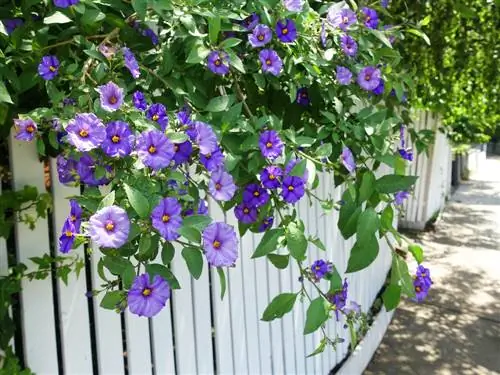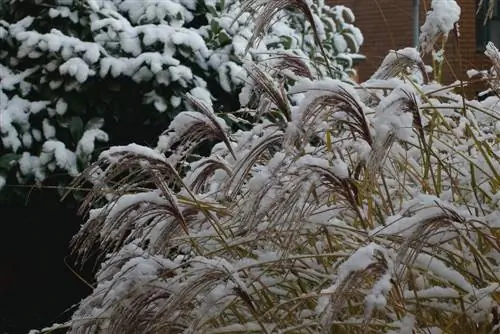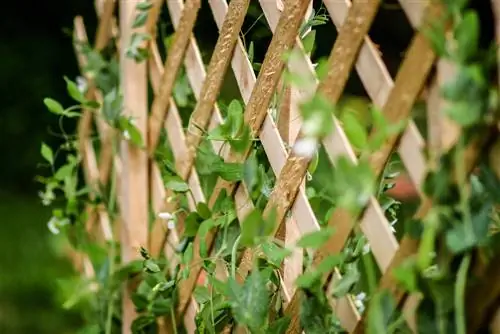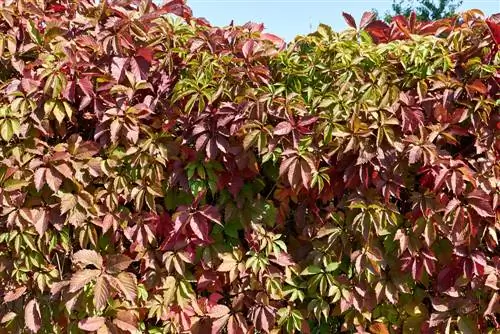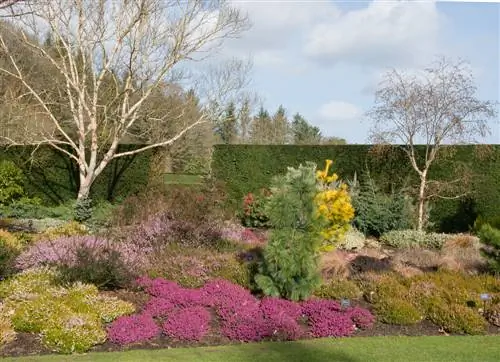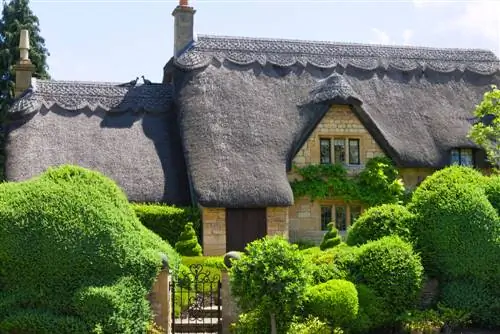- Author admin leonars@hobbygardeners.com.
- Public 2024-01-02 03:03.
- Last modified 2025-01-23 11:21.
If you want to make your fence decorative, you can either paint it or plant it. Tall perennials or low trees as well as pretty climbing plants are ideal for this purpose. If you don't have a fence, you can replace it with hedges and bushes. Below you will find the best ideas on how to plant your fence or replace the fence with plants.
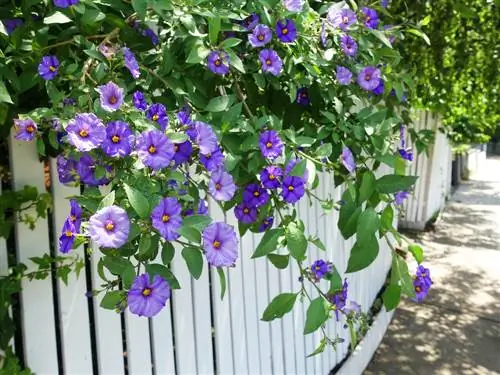
Which plants are suitable for creating a fence?
To make a fence decorative, you can plant it with perennials such as catnip, lady's mantle or sunflowers. Climbing plants such as clematis, real hops and climbing hydrangea or evergreen trees such as bamboo, boxwood and privet are suitable for opaque privacy.
Planting the fence
An unsightly or boring fence can be beautifully decorated with the right plants. These also help to make the fence more opaque and thus provide better privacy. Before you choose the plants for your fence, you should ask yourself the following questions:
- Are the same lighting conditions everywhere along the fence?
- Do you want to plant the same plants across the entire fence or do you want to vary them in sections (especially useful in different lighting conditions)?
- Do you want flowering privacy screens for the summer or evergreen trees?
- How sensitive is the fence? Can you upload something to it?
Cover the fence with perennials
Perennials have the advantage that they do not cling to the fence and therefore do not damage it. They also delight with their colorful flowers. The disadvantage is that they do not last long, as the perennials lose flowers and leaves at the first frost at the latest and have to be cut down. They also need a relatively large amount of water and form a rather light privacy screen. The following are possible:
- Catnip
- woman's coat
- larkspur
- Sunflowers
- Sun Bride
- Hollyhocks
Plant the fence with climbing plants
If you have a sturdy fence, you can let it grow over with climbing plants. This looks very nice and most climbing plants also bloom very attractively. Ivy is even hardy and wintergreen, but it only blooms after many years and is rather inconspicuous. The following flowering climbing plants can be considered:
| Name | Location Requirements | Flower color | hardy | Special features |
|---|---|---|---|---|
| Clematis (Clematis) | Partly shaded to sunny | Violet to pink | Few varieties | |
| Real hops | Sunny to partially shaded | Inconspicuously white, but attractive fruits | Yes | Not evergreen |
| Nasturtium | Sunny to partially shaded | Orange to yellow | No | Edible flowers |
| Climbing hydrangea | Partial shade to shady | White | Yes | Grows up to several meters high |
| Climbing Heart Flower | Partial shade | Yellow | Conditional | Up to 3 meters high |
| Morning glory | Sunny | Violet, pink, blue | No | |
| Crown of Glory | Partial shade | Red | No | Burns quickly in the midday sun |
| creeper knotweed | Sun, shade, partial shade | White | Yes | Gets very tall, very robust |
| Black-Eyed Susan | Sunny, warm | Mostly yellow or orange, but also available in red or white | No | |
| Perennial sweet peas | Sunny to partially shaded | Violet | Yes | Robust |
| Wild Wine | Sunny | Inconspicuous, but red leaves in autumn | Yes | Getting very high |
Covering a fence with trees or creating it with trees
If you don't have a fence, you can create a beautiful, opaque privacy screen with shrubs and bushes that are easy to cut - in summer and winter. Evergreen, hardy hedge plants include:
- Bamboo (hardy varieties)
- Boxwood
- Yew
- Firethorn
- Cotoneaster
- Cherry Laurel
- Leyland Cypress
- Privet

